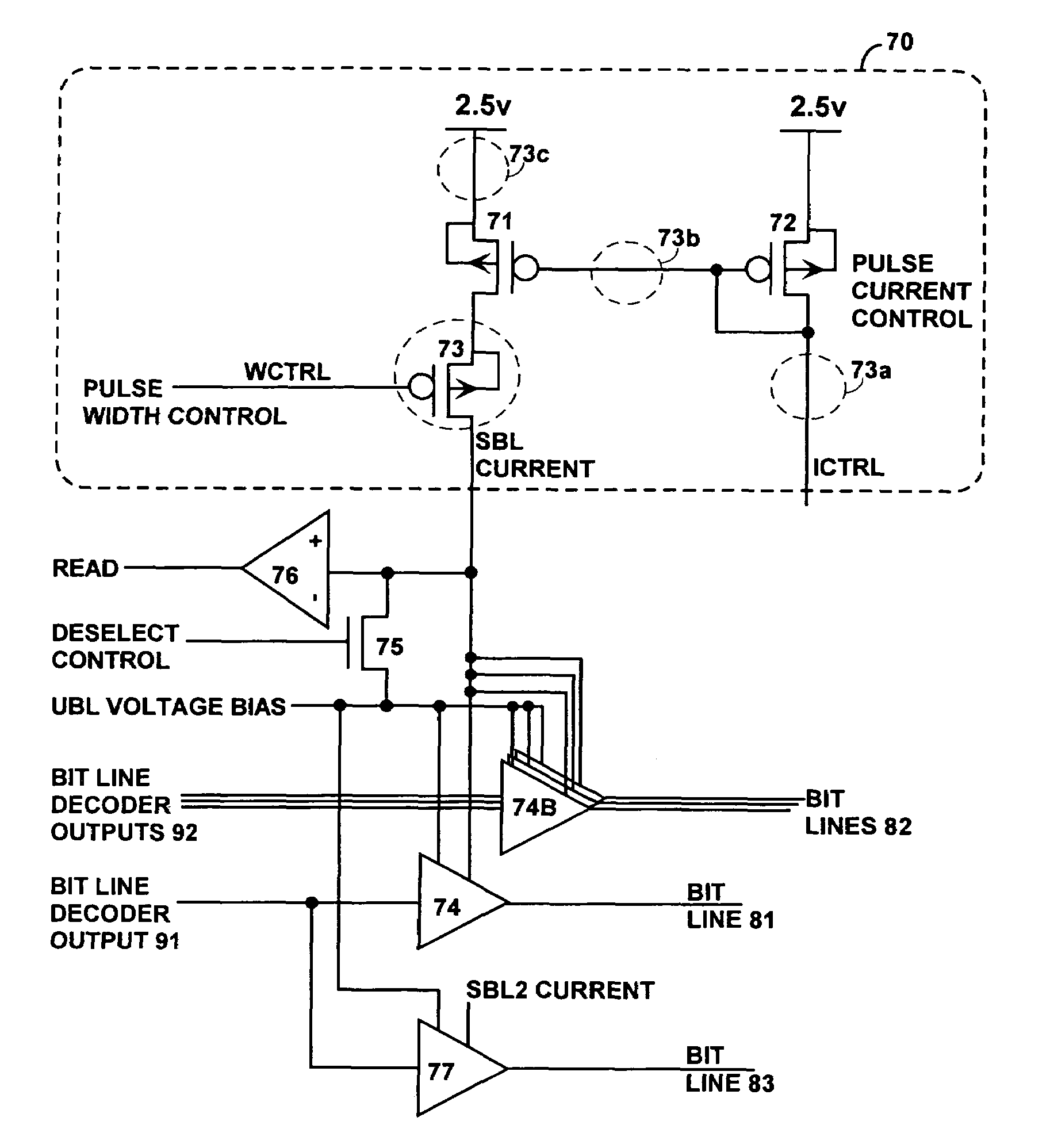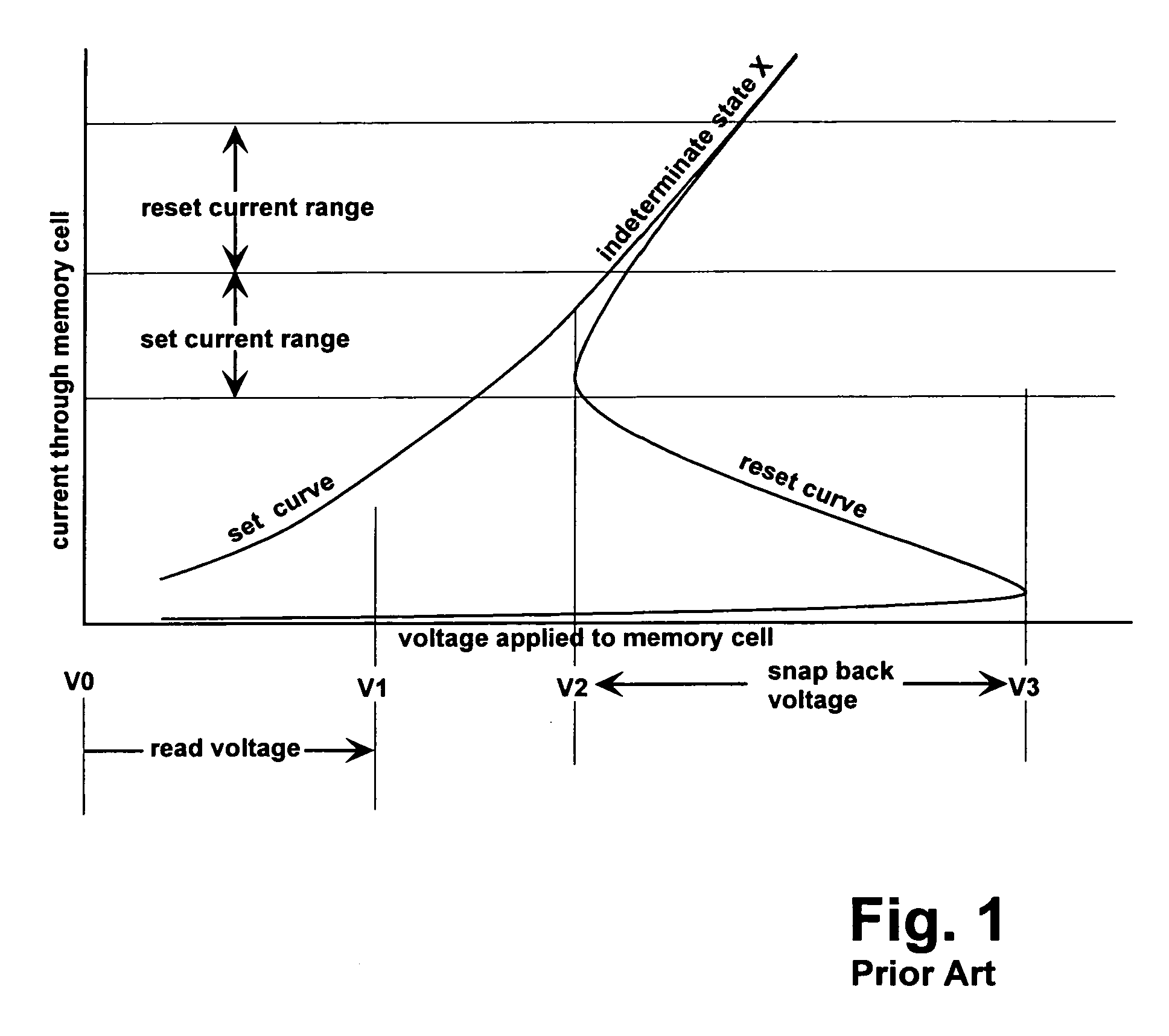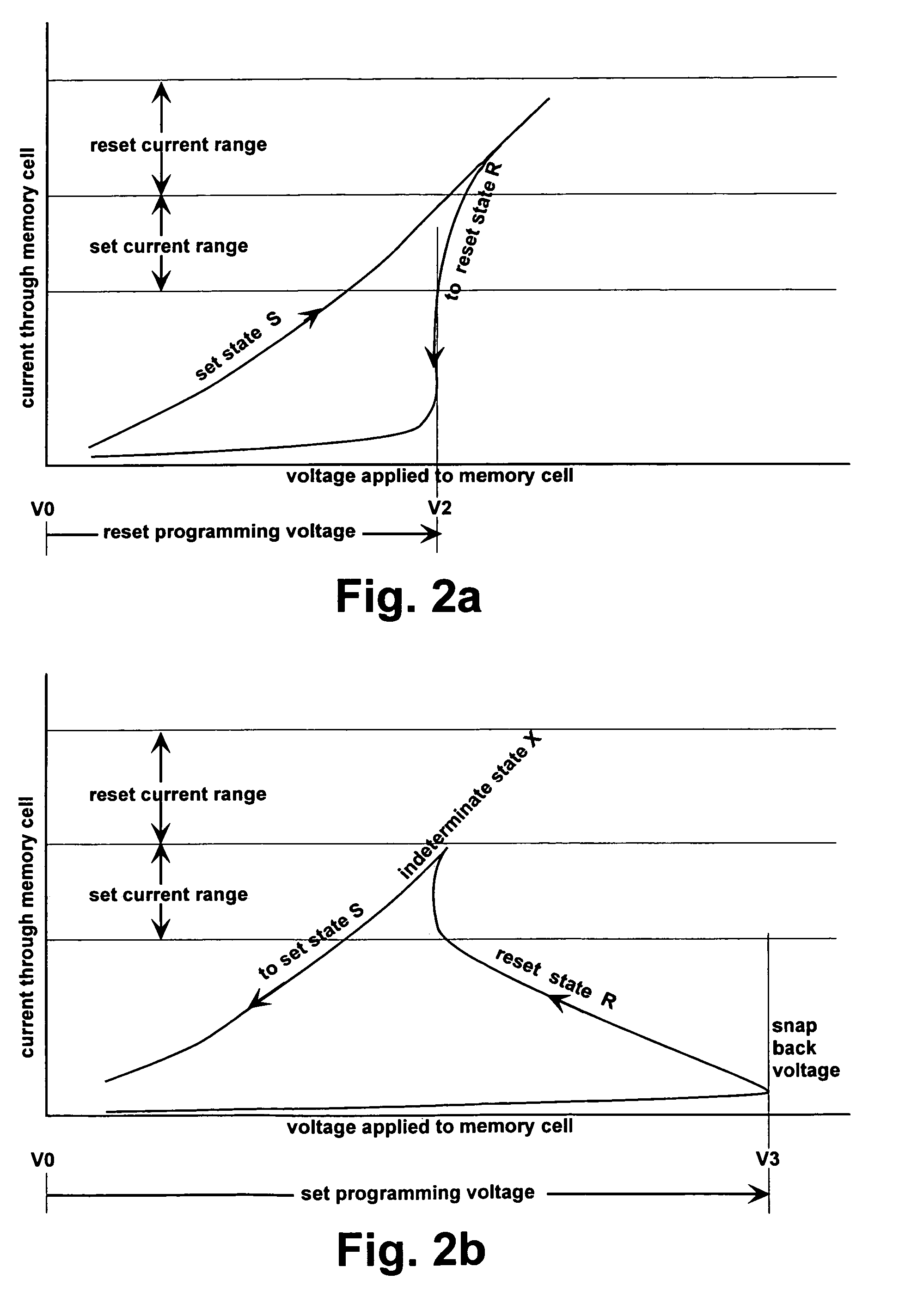Structure and method for biasing phase change memory array for reliable writing
a phase change memory array and phase change technology, applied in the direction of digital storage, instruments, semiconductor devices, etc., can solve the problems of unintentional programming (or reading) of a cell connected to a previously selected word line or bit line, high cost, and high cost, so as to reduce the likelihood of programming or reading and minimize leakage current
- Summary
- Abstract
- Description
- Claims
- Application Information
AI Technical Summary
Benefits of technology
Problems solved by technology
Method used
Image
Examples
Embodiment Construction
[0023]While many solid materials can change between crystalline and amorphous states, in this discussion the term “phase change material” will be used to describe a material that changes relatively easily from one stable state to another. The change is typically from an amorphous state to a crystalline state or vice versa, but may include an intermediate change, such as from a more ordered crystalline state to an indeterminate state to an amorphous state, or vice versa. Phase change material is converted from one state to the other by heating to high temperature, then cooling at a selected rate. Chalcogenides are well-known phase change materials.
[0024]It is known to use phase change materials, such as chalcogenides, in a nonvolatile memory cell, in which a high-resistance, amorphous state represents one memory state while a low-resistance, crystalline state represents the other memory state, where memory states correspond to values of 1 and 0.(If intermediate stable states are achi...
PUM
 Login to View More
Login to View More Abstract
Description
Claims
Application Information
 Login to View More
Login to View More - R&D
- Intellectual Property
- Life Sciences
- Materials
- Tech Scout
- Unparalleled Data Quality
- Higher Quality Content
- 60% Fewer Hallucinations
Browse by: Latest US Patents, China's latest patents, Technical Efficacy Thesaurus, Application Domain, Technology Topic, Popular Technical Reports.
© 2025 PatSnap. All rights reserved.Legal|Privacy policy|Modern Slavery Act Transparency Statement|Sitemap|About US| Contact US: help@patsnap.com



